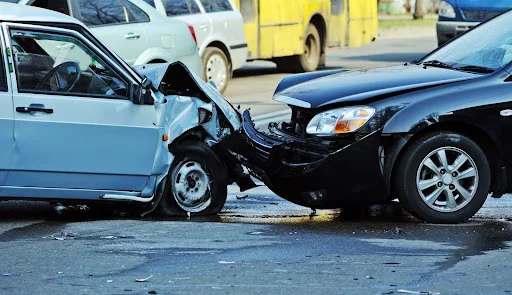
Many states require that drivers carry a minimum amount of personal injury protection (PIP) coverage on their auto insurance policies. PIP insurance covers policyholders for certain expenses related to car accidents, such as medical bills and funeral expenses. Auto accident victims might wonder if they can go through their own health insurance rather than their PIP insurance policy. In Washington and Oregon, PIP is usually the primary coverage after an automobile crash, and health insurance is secondary. That means that accident victims must use their PIP insurance coverage first. Once the injured person uses up their coverage under their PIP policy, their health insurance policy will generally kick in. Today we will explain the differences between health insurance vs. personal injury protection.
Basics of PIP Insurance
Personal injury protection insurance is also known as “no-fault” insurance. PIP insurance covers the policyholder’s medical bills and lost wages after a car accident. It does not matter who caused the accident. There is also no penalty for making a PIP claim under your own policy. The policyholder goes through their own auto insurance company for this compensation. If you are a passenger in someone else’s car, and they get into an accident, their PIP policy will typically cover your medical expenses. People seeking compensation under their PIP policies must do so within three years of the date of their injuries.
PIP insurance covers the following expenses:
- Medical and hospital bills,
- Lost wages,
- Loss of services to non-family members if the victim does not work,
- Service benefits (for example, home or transportation assistance), and
- Funeral expenses.
Oregon drivers must carry a minimum of $15,000 of PIP coverage. PIP will cover all medical expenses and 70% of the lost income until the person returns to work.
PIP coverage is not mandatory in Washington, but drivers must reject it in writing if they don’t want it. In other words, the choice to buy PIP belongs to you, but your insurance company must offer it to you. And if you do not reject it in writing, the auto insurance company will add it to your policy and charge you for the coverage. So if you do not remember rejecting it, it is likely that you have it. The minimum amount of PIP is $10,000 for medical and hospital expenses. In Washington, PIP coverage also includes compensation for loss of services paid to non-family members for work you cannot do anymore due to your injuries.
At-Fault States with PIP Insurance
Both Oregon and Washington are at-fault states. That means that the driver responsible for a car accident must pay for the injured person’s damages. Accident victims file claims with the at-fault driver’s insurance company. They can also file personal injury lawsuits against the driver in court.
In both states, the insurance company can recover any PIP they paid if there is a legal claim for bodily injuries. The insurer of the at-fault party must reimburse the company that paid PIP to their policyholder, or the insurance company can seek reimbursement from their PIP policyholder directly.
Advantages of PIP Insurance
Using PIP coverage offers some advantages:
- Claimants do not have to prove that someone else was responsible for the accident;
- PIP insurance covers both the driver and their passengers in a vehicle accident, as well as injured pedestrians;
- PIP insurance covers car accident-related injuries, which health insurance might not cover;
- There are no out-of-pocket expenses;
- PIP insurance policies usually have higher payouts for medical expenses than health insurance payouts;
- Health insurance covers only medical expenses; and
- Relatives that you live with are also covered in your PIP policy.
A disadvantage of PIP coverage is that your insurance company can decide not to cover certain accident expenses or deny your claim altogether. PIP insurance will not apply if:
- Your expenses are not reasonable, necessary, or related to your accident;
- You incurred the expenses over three years from your accident;
- Your injuries happened while racing; or
- You were in the process of committing a felony when the accident occurred.
Your PIP policy might contain time limits on when you must see a medical provider for your injuries, so it is important to see a doctor as soon as possible.
Using Health Insurance After PIP Runs Out
Once you have used up all of your PIP coverage to the maximum extent of your policy, or if your PIP insurer denies your claim, you can turn to your health insurance to cover additional healthcare-related expenses. Your policy must cover auto accident-related injuries. However, under your health insurance policy, you must also get your treatments as dictated by your policy regarding covered services and providers. If you fail to do so, you will likely end up paying a lot more money out-of-pocket for uncovered expenses. As with PIP insurance, you will probably have to reimburse your health insurance at least partially for certain expenses they paid if you receive a settlement from a personal injury claim. You cannot recover lost wages or other non-medical expenses from your health insurance company. However, having both PIP and health insurance can lead to peace of mind knowing that your injuries are covered in the event of an accident.
Contact D’Amore Law Group
If you were injured in a car accident, you likely have questions about your best options for recovering compensation. At D’Amore Law Group, we are an experienced personal injury legal team ready to discuss your claim. If your expenses exceed your PIP coverage, we can help you decide what to do next to make a full recovery. We can advise you on submitting your PIP claim and whether initiating a lawsuit is the right strategy for your situation. Contact us today to discuss your situation.
